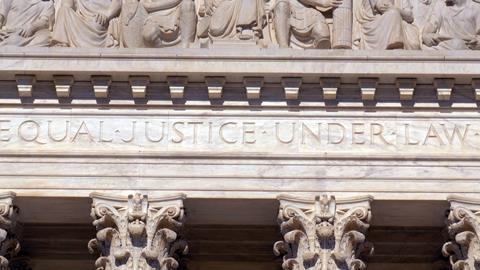Securing the future of liberal democracies
A Pluralist Theory of Constitutional Justice: Assessing Liberal Democracy in Times of Rising Populism and Illiberalism
Professor Michel Rosenfeld
£90, Oxford University Press
★★★★✩
Professor Michel Rosenfeld, of the Cardozo School of Law in New York City, embarks on a quest to understand the ‘justice essentials’ that are needed to reinforce the constitutions of liberal democracies.
This book is not, however, easily digestible and requires perseverance to understand the solutions proposed by its author. Professor Rosenfeld concludes that a ‘pluralist’ approach is required. This approach involves underpinning the law with a deep appreciation of the wider philosophical, political, social and economic issues that the law is intended to frame and protect. In that context, one of the more contentious areas which confronts liberal democracies is the role of religion. Rosenfeld does not shy away from addressing the often uneasy relationship between the two.
This book is much more of a study than a narrative, though its arguments are backed by historical and contemporary examples. It has helpful introductory and concluding chapters with the complex forensic investigation in between.
The author helpfully signposts each of the book’s three main parts with short one-page summaries; this is particularly helpful for the lay reader. The three sections are entitled: New Challenges and Threats; Revisiting and Reconfiguring the Philosophical Grounding of Liberal Constitutionalism’s Ideal of Justice; and Building a Commonly Shared Basis toward a Pluralist Inclusivist Constitution. One does get a sense of the academic depth of the author’s analysis. For experts in jurisprudence, one is not disappointed.
The parts are divided into separate chapters and sub-sections and include analysis of the views of celebrated thinkers (both from the legal world and more widely) such as Kelsen, and Kant and Rawls, Habermas and Dworkin.
The footnotes, bibliography and index are all helpful. The book as a whole is one of great erudition. More importantly, it does make a valid contribution to the case for securing the future of liberal democracies through the strength of their constitutions. However, this book is most likely to appeal most to a restricted academic audience.
David Glass is a consultant solicitor at Excello Law
































No comments yet